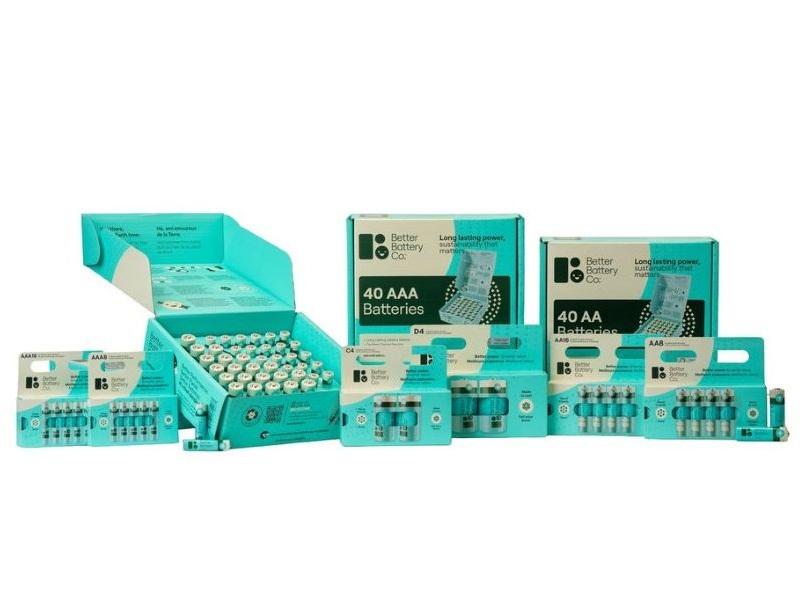
Klean Industries Inc. has partnered with two German companies to implement a containerized hydrogen facility, which will allow it to add hydrogen production to existing tire recycling operations at its facility in Oregon.
Klean, which is headquartered in Vancouver, signed the venture with H2 Core Systems GmbH to build and distribute the hydrogen production facilities. The first of the systems is to be in operation early in 2023, and will add green hydrogen to Klean's other product lines.
Klean’s Boardman, Ore. facility processes 60,000 metric tonnes of passenger vehicle tires per year. The facility currently recycles tires into the recovered carbon blacks and bio-oils, re-utilizing the natural oils found in the rubber. Carbon blacks are materials used as colourants and reinforcing fillers in tires and other rubber products.
H2 Core Systems develops, manufactures and maintains modular and configurable electrolysis systems. The partnership will also utilize Enapter AG's Anion Exchange Membrane (AEM) electrolysers. H2 Core is a distributor for Enapter, which is also based in Germany.
Enapter's modular electrolysers can be deployed individually or at scale to produce any amount of on-site hydrogen.
Klean provides clean energy and recovered resources to industrial manufacturers.
The company, founded in 2005, has operations in numerous global countries and offices in the U.S., the U.K., Japan and Malaysia.
Hydrogen and the Boardman facility
At the Boardman facility, Klean will to implement a modular and scalable 40-foot containerized hydrogen pilot project, which includes an H2 Core AEM 1 MW electrolytic production unit.
“Enapter put us in touch with H2 Core. Their philosophy and business was a great fit for us,” said Jesse Klinkhamer, Klean’s CEO. “They basically make the containerized units. They take Enapter electrolysers, install the rest of the kit, then it's privately labelled as a Klean Industries kit that we can then distribute throughout our logistics network of collecting waste and with our own facilities and possibly partner facilities.”
The units cost approximately $3 million to $4 million, with an energy cost of about $50 per megawatt. While it's scalable, Klinkhamer said the unit can produce roughly 436 kilograms of hydrogen in a day with 400 electrolysers installed. It can also run 24/7.
The hydrogen produced at Boardman will initially be used by Klean's modular oil upgrading units. It can be utilized to upgrade recovered fuel oil and pyrolysis oil into drop-in replacement e-fuels, which produces gasoline and diesel that emit significantly lower amount of carbon dioxide.
The Klean-H2 Core partnership
The partnership took about a year to come to fruition.
According to Klinkhamer, Enapter’s system does not require any rare earths for the electrolyser process, and the company is on track to reduce its electrolyser production costs by 83 per cent by 2025. He compared it to the progress in computer chips in the micro-processing industry.
The H2 units can be used to generate hydrogen at other Klean facilities. A release states this hydrogen can be implemented in Klean's fleet of vehicles. The systems could also lead to integration of fuel cells, engines and boilers powered by green hydrogen to offset energy costs.
"We believe Enapter's mass-produced AEM Electrolysers will enable low-cost green hydrogen to be deployed at a massive scale in the shortest amount of time," said Sebastian-Justus Schmidt, Enapter’s CEO, in a statement on the partnership. "It is partnerships like this that illustrate the demand and opportunity throughout various industries for green hydrogen worldwide."
Klean’s Boardman facility
The scrap tires processed at Boardman come from Oregon, Northern California, Northern Idaho and Southern Washington.
“It's roughly just shy of about 7.5 million passenger vehicle tires a year (that) will be processed at that facility into a recovered carbon black and a bio-oil, because natural rubber is in tires. So when we extract that hydrocarbon, 35 to 40 per cent of it is bio-oil,” Klinkhamer explained.
“That's going back into a carbon black process to make virgin carbon black that's eco-friendly. So it's circular. (There’s) also the hydrogen aspect of it.”
Klinkhamer singled out the facility’s location – right along the Columbia River, where the John Day Dam is located – as ideal for low-cost hydropower.
“What we're going to really focus on is the logistics from Boardman to Portland, Portland to Sacramento, and then all the way through (to) British Columbia,” he said, estimating it would cost about $350 million to provide hydrogen infrastructure along the length of that supply chain.
“So our game plan is to partner with some of these fuel cell manufacturers where we will build and install these hydrogen plants and they'll be distributed (to) fuelling stations, some powered by solar, others powered by hydroelectric.”
Klean’s future with hydrogen
Klean’s early focus was in Germany and Japan, where Klinkhamer said waste energy facilities and infrastructure were already well established.
He said there are still only about 100 waste energy facilities operating at scale in North America. Klean largely focuses its technologies and facilities on oil-based waste, plastics and municipal solid waste.
The company plans to use this containerized technology in different hubs. There are plans for a hub of about 30 MW in southern Washington, for example. However, not all of that hydrogen will be used for transportation.
He also mentioned Klean’s partnership with companies manufacturing hydrogen-based backup generators as another possible use.
As for implementation in Canada, he singled out B.C. and Alberta as significant targets.
“Because of the industrial activity and the desire and the need for hydrogen, particularly in the oil field as well, I think there's a ton of opportunity there,” Klinkhamer said. “Canada has been super supportive of the swap to renewables in the transition.”










